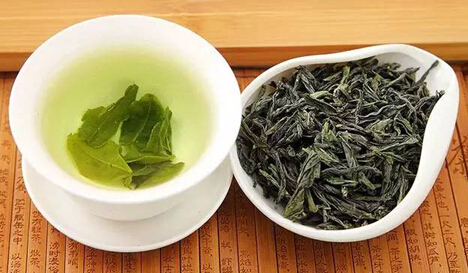China is a country with a tea culture history that is both long and profound. As the birthplace of tea culture and the homeland of tea, China boasts a diverse variety of teas with unique brewing methods. The naming and pronunciation of teas also carry rich connotations and stories.
When it comes to tea, none of us are strangers to it. We’ve all tasted different kinds of famous teas, with their initial impression of a slightly bitter taste and a lingering fragrance on the lips and teeth. When chatting with friends, we can confidently discuss the fresh aroma of Tieguanyin and the mellow, refreshing taste of Biluochun, or even comment on the emerald green color of Xinyang Maojian and the sweet, smooth flavor of West Lake Longjing. However, there is one tea we might often drink but not necessarily pronounce its name correctly—Lu'an Guapian.

As one of China’s top ten famous teas, I believe everyone is familiar with "Lu'an Guapian." But if we were in a classroom attending a lesson on tea culture, I’d bet many would mispronounce "Lu'an Guapian" as "Liu'an Guapian." Some readers might argue this is impossible—how could such a simple name be mispronounced? But before debating, let’s recall our first instinct when seeing the name "Lu'an Guapian." I’d wager many initially thought it was "Liu'an Guapian."
Mispronouncing the name doesn’t mean we’re ignorant. Chinese culture is vast and profound, with many characters having multiple pronunciations. An occasional mispronunciation is understandable. Once we truly understand its origin and cultural significance, we might exclaim, "Oh, so that’s why!"

So, why is "Lu'an" pronounced "lu" instead of "liu"? This traces back to the tea’s origin—the city of Lu'an in Anhui Province. Lu'an has a rich historical and regional culture, and the pronunciation "lu" has been preserved for over 2,100 years.
Historically, "Lu" was the fiefdom of the descendants of Gao Yao. The "Records of the Grand Historian: Annals of Xia" mentions Emperor Yu "granting the lands of Ying and Lu to the descendants of Gao Yao," marking the early form of the Lu state. Here, "Lu" refers to the place, not the number six. In ancient Chinese, "Lu" is a variant character for "land," meaning "a slightly elevated area," which aligns with Lu'an’s topography. This pronunciation is also noted in the "Kangxi Dictionary."

In 121 BCE, Emperor Wu of Han established the Lu state with the decree "peace in Lu, never to rebel," where "Lu" again referred to the place, not the number six. Thus, following the principle of "determining pronunciation by meaning," "Lu'an" should be pronounced "lu."
Confucius said, "To know what you know and know what you don’t know is true knowledge." In the information age, we should strive for accuracy in even the smallest details, like the pronunciation of a single character.